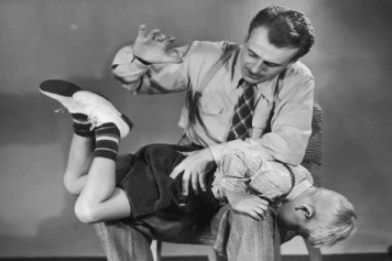by Raindrop Administrator | Jan 22, 2015 | Couples in Therapy
1. Ask for a volunteer couple. (It works best to have your helpers do this exercise and act like a pursuer/withdrawer).
– Have them stand opposite one another, and instruct them not to move so that they stay in one place.
– Tell the volunteers that this is a silent exercise (no words, only facial expressions etc.).
– Give one partner a box of soft balls (we use soft red hearts with our logo on them).
– Give each of them secret instructions:
– Partner number 1: Your job is to get your partner to catch one of these balls. Do whatever you need to, to get your partner to catch a ball.
– Partner number 2: Your job is to get your partner to stop throwing these balls. Do whatever you need to, to convince your partner to stop throwing.
2. Let this go on for couple minutes and let a cycle develop.
3. Then ask the other participants in the group, who have been standing in a large circle around this couple, to identify with one partner or the other.
– Ask them who they feel for/which partner they identify with/etc.
– Ask them go and stand behind that partner, so that two groups appear in the room.
4. While the couple is still playing this game, walk around the room with 2 large signs, for the larger group to see.
– One sign says: I am trying to connect and will do whatever it takes.
– The other sign says: I am trying to prevent a fight, I have to get this to stop
5. Pause the game.
– Have the two partners debrief on what the game was like: ask them to talk about their position, how they felt, how they interpreted the other’s moves.
– Then ask the larger group for their reactions, and start to facilitate a debate between the two sides. Probe and provoke some discussion, with questions such as….
– “I’m being convinced by the throwing partner here”
– “I agree that the other group seemed unresponsive. What were you all thinking?”
– “Well why don’t you respond? Oh you are right, the throwing could be intimidating you have a point.”
– “The throwing team seems agro, why are you guys getting so worked up about connecting?”
This exercise takes about 30 minutes. It is a large group game that draws each person in, and has each consider the position they take in their own relationship. Each participant is able to identify with others who react the way that they do, and are able to hear about some of the reasons for the way they react. This exercise gives them some solidarity, and it gives them an opportunity to look at their own reactivity with some distance. This activity also gives participants an opportunity to understand why their partner may react in certain ways.

by Raindrop Administrator | Nov 6, 2014 | Emotions, Family Therapy
Parents who spank their children, are scared of bringing their children to therapy, for fear that their therapist will report them for child abuse. This makes me so sad. I have had friends call me before seeing a family therapist, who need reassurance that they aren’t going to get reported to CPS. This leads me to wonder, how many families are living with this fear, and consequently missing out on family treatment?
The article, “The Myth of the Wooden Spoon,” by CAMFT Attorney David Jensen, provides information and reassurances that I found so insightful I felt compelled to bring it to your attention and summarize some of the key points.
From my parent perspective, as one who occasionally spanks my children, I also do not want to live in fear of being reported for abuse. In order to combat these potential fears, I believe it’s important to understand what the law says. California’s Child Abuse and Neglect Reporting Act (CANRA) describes what constitutes physical child abuse. As a clinician for many years, I am a mandated reporter for CANRA. My understanding was that when a spanking results in a bruise and/or when spanking takes place with an object – this constitutes abuse. Well, it’s not that simple. For that I am thankful.
There was a case in the CA Court of Appeal in 2014, called Gonzalez v. Santa Clara County Department of Social Services that held that “a parental privilege to impose reasonable physical discipline upon a child” must be considered when child abuse is being considered. As Jensen well summarizes, “a spanking does not constitute Child Abuse.” (p.42)
According to Gonzalez there is a difference between reasonable parental discipline and unreasonable criminal discipline. So what is the difference:
- Is there a genuine motive for the spanking? A carefully considered spanking to bring your child back to obedience, is very different than an impulsive punishment that is terrorizing and intimidating for a child. Criminal spankings are often happening in homes where there is also other violence happening.
- Is there a reasonable occasion for the spanking? Did the child do something that warrants a spanking? Is the child displaying serious enough behavioral symptoms and have you tried other strategies to deal with the behavior?
- Is the spanking reasonable in kind and degree? What you want to consider here is what the age of the child is, the part of the body you are spanking on, the object you are using to spank, and the type of damage and injuries the child sustains.
As a parent, ask yourself the following questions:
- Are you eager to spank your child?
- Do you derive self-gratification from spanking your child?
- Is spanking the only form of discipline you use?
- Do you feel out of control when you spank?
- Do you spank regardless of what the situation may warrant?
If the answer to any of these questions is yes, consider getting some support for yourself. You can work on your own emotional triggers and broaden your resources so that you can be a responsible and accessible parent to your children. Give me a call: 619 352 0054
Reference: The Myth of the Wooden Spoon, CAMFT magazine, September/October 2014, p 41 – 44.
Image via FPG / Retrofile / Getty Images
by Raindrop Administrator | Aug 3, 2014 | Office Updates
I am so excited that I will be leaving for South Africa in a week and that I will be promoting EFT for 7 weeks. We will be offering two Hold Me Tight Couples Retreats, one externship and three Core Skill weekends, across 3 cities (Johannesburg, Bloemfontein and Stellenbosch).
I am so looking forward to seeing the budding EFT therapists who continue their journey in EFT and are doing so well. As many of them approach Core Skills 3 it is inspiring to witness how passionate these skilled clinicians are and it’s an absolute pleasure to train them.
Training in South Africa is special for various reasons:
- Personally, it feels so good to give back to my own country
- From a professional perspective it’s amazing to train people who are hungry, grateful and so motivated to grow.
- In a country with a small economy, clinicians can’t attend just any training of their choosing – it costs a lot to take time away from work, and flying around the country is not an option for many. By the time they select to attend this training, they are ready to make the most of every moment. I’ve come to expect them to say, “let’s just keep doing the role plays”, “the more experiential time the better”. “we don’t know when we will see you again and have an opportunity to grow like this”.
- On a macro level, knowing that our country needs these resources so badly, it’s amazing to feel I’m contributing in a small way to the families and people here getting closer to the help and resources they so badly need.
So for all these reasons, here I go and I look forward to seeing you all again.
by Raindrop Administrator | Nov 29, 2013 | Office Updates
I recently learned that running a business, is really no different than being in a family. My practice – is my work family. Kim, Alair, Mark and I are committed to one another. We have chosen to work together, and to be in one another’s lives. We see each other on our work days, and we spend hours together weekly, talking about our lives and our work. We laugh together, we argue, we have cried together, and we pray together. Occasionally when we can, we go out and have fun together.
Working together closely in this way, makes working worthwhile.
Love this lady – I’ve worked alongside Kimberly Sandstrom for the past 2 years. She has become a close friend and confidant to me. If you know Kim, you know someone who is trustworthy, loyal, committed and honest. I love your ethical standards Kim, I love your transparency, and I love the way that you inspire others. You lead so naturally, and you also play a supportive role. You fill my work days with joy Kim, and I am so grateful to have you as a part of my practice!
What a man! – Mark Karris joined our practice about 18 months ago. Mark continues to amaze me with his vibrant smile, his passionate views of life, and his vast knowledge. Mark you are thoughtful, you are well-spoken and you live by your beliefs. Mark thank you for being a part of my practice, and for growing alongside of me. You have a hunger for real relationships, and it’s beautiful to see someone who knows what he wants, and is willing to fight for it.
Breath of fresh air – Alair Olson – you are the newest person in our family practice, and I am so enjoying getting to know you. You are a hard worker, with good boundaries. You are honest, and kind, and committed. You have such a natural ability to work with children and families. You also have an uncanny ability to assess and read situations. Your past experience is an asset to the work that you do. I look forward to many more years of knowing you and working alongside of you.

by Raindrop Administrator | Nov 9, 2013 | Couples in Therapy, Emotions, Therapy
How Emotionally mature do you consider yourself to be?
PROVE IT! Answer these questions:
IS THIS TRUE:
I notice an emotion when it shows up/ I know when I am feeling something
I use my feelings to motivate action
I see my impact on others
I think about how others view my responses
When I decide what to do, I am aware of how it will effect my relationships
OR IS THIS TRUE:
My partner understands my emotion better than I do
My emotions often gets the better of me in arguments
My emotions are so strong that they are overwhelming
I often react rather than respond to my partner
I don’t have clue why my partner reacts so strongly to what I say or do
I don’t know what I feel
I don’t know why my arguments end in a worse place than where they started
Achieving emotional awareness can be a challenging but beneficial aspect of relationships. Consider working on your emotional awareness and maturity. Doing so should give you greater satisfaction and flexibility in your relationships!
Except from EFT for Dummies, Bradley and Furrow, 2013
Image via http://www.interchanges.com/emotional-maturity-success-hack/

by Raindrop Administrator | Nov 16, 2009 | Couples in Therapy, Therapy
I witnessed the power of a marital relationship, even though it was a marriage that has been struggling. I was sitting with a husband who had an abusive past. He is not able to cry about it even though he has so much sadness caught up inside. Instead the sadness comes out in anger and hurts those around him. I worked with him for a good 20 minutes to try to get him to feel the hurt. I couldn’t.
As he was sitting and recounting some of his childhood history his wife began to weep. He turned and asked her what she was crying about, and she said she was crying for him, for his pain. As she wept, he began to weep too.
Finally we were able to access his sadness, and he was then able to share it with her and let some of it go.
I love it when loved ones join us in therapy, it is so much more powerful.
Image via Thomas Barwick-Taxi/Getty Images
by Raindrop Administrator | Jul 22, 2009 | Office Updates
I got to spend the afternoon with two middle-aged brothers who were reflecting on their childhood. They grew up in a very difficult household and both were affected deeply in their own ways. It was amazing to see the healing that came to them both as they were able to share their memories and see them validate each others experiences. Too often siblings who grow up in a conflictual family are set against each other and they grow apart as a result. Here was a case of the siblings becoming emotionally close after many years. Having survived the same family they relate to each other in a very special and deep way. It was an honour to sit with them and to be a part of their process.
Tags: brothers, bonding

by Raindrop Administrator | Jul 22, 2009 | Emotions, Therapy
A young woman said something so profound to me today. She told me that what she loves about therapy is that the therapist doesn’t know any of her friends or colleagues. This allows her to talk about her life and her experiences freely. If the therapist had known her environment, then she would have felt like she was “gossiping”.
You see the difference is that you don’t just come to therapy to gossip or talk for the sake of talking. You come to talk so that you can learn about yourself, your responses and so that you can work on ways to change. So you are probably not gossiping when you’re in therapy, and if you are – find a friend instead and stop paying the therapist 🙂




